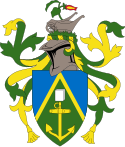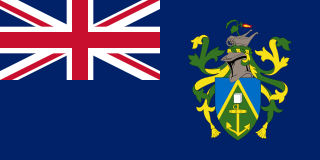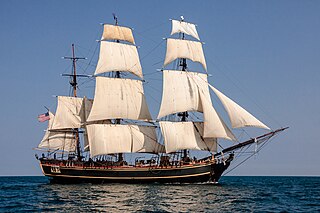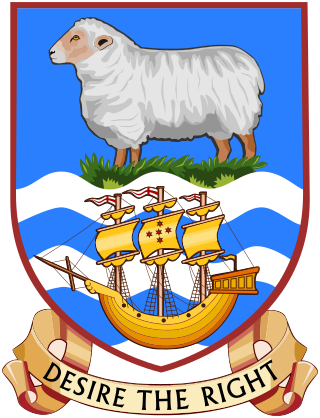 |
|---|
A referendum on tourism development was held in the Pitcairn Islands in March 2001. [1] The proposals put forward by Wellesley Pacific were approved by 78% of voters.
 |
|---|
A referendum on tourism development was held in the Pitcairn Islands in March 2001. [1] The proposals put forward by Wellesley Pacific were approved by 78% of voters.
A referendum was held in 1981 on the subject of building an airfield for the island. Although it was approved by 90% of voters, construction had proved too expensive.
Wellesley Pacific proposed the construction of a 30-bed hotel and an international airport on Oeno Island, with regular flights to Tahiti and New Zealand. A second airport would be built on Pitcairn island with two lodges, whilst Bounty Bay would be modified to allow boats to land. A processing plant would also be built to allow the development of a fishing industry. The company demanded exclusive rights to develop the islands, but said it would give 10% of profits to island residents. However, environmentalists raised concerns about the potential effects on the islands' unique plant and animal life. [1]
| Choice | Votes | % |
|---|---|---|
| For | 22 | 78.57 |
| Against | 6 | 21.43 |
| Total | 28 | 100 |
| Source: The Observer | ||

Norfolk Island is an external territory of Australia located in the Pacific Ocean between New Zealand and New Caledonia, 1,412 kilometres (877 mi) directly east of Australia's Evans Head and about 900 kilometres (560 mi) from Lord Howe Island. Together with the neighbouring Phillip Island and Nepean Island, the three islands collectively form the Territory of Norfolk Island. At the 2021 census, it had 2,188 inhabitants living on a total area of about 35 km2 (14 sq mi). Its capital is Kingston.

Politics of Norfolk Island takes place in a framework of a parliamentary representative democratic entity. Norfolk Island is the only non-mainland Australian territory to have achieved self-governance. The Norfolk Island Act 1979, passed by the Parliament of Australia in 1979, is the Act under which the island is governed.

The Pitcairn Islands, officially the Pitcairn, Henderson, Ducie and Oeno Islands, is a group of four volcanic islands in the southern Pacific Ocean that form the sole British Overseas Territory in the Pacific Ocean. The four islands—Pitcairn, Henderson, Ducie and Oeno—are scattered across several hundred miles of ocean and have a combined land area of about 18 square miles (47 km2). Henderson Island accounts for 86% of the land area, but only Pitcairn Island is inhabited. The islands nearest to the Pitcairn Islands are Mangareva at 688 km to the west and Easter Island at 1,929 km to the east.

The mutiny on the Royal Navy vessel HMS Bounty occurred in the South Pacific Ocean on 28 April 1789. Disaffected crewmen, led by acting-Lieutenant Fletcher Christian, seized control of the ship from their captain, Lieutenant William Bligh, and set him and eighteen loyalists adrift in the ship's open launch. The mutineers variously settled on Tahiti or on Pitcairn Island. Bligh navigated more than 3,500 nautical miles in the launch to reach safety and began the process of bringing the mutineers to justice.

The coat of arms of the Pitcairn Islands is an official emblem of the British Overseas Territory of the Pitcairn Islands and was granted by royal warrant on 4 November 1969. The flag of the Pitcairn Islands, also an official emblem, consists of a Blue Ensign displaying the coat of arms and was granted on 2 April 1984.

The history of the Pitcairn Islands begins with the colonization of the islands by Polynesians in the 11th century. Polynesian people established a culture that flourished for four centuries and then vanished. They lived on Pitcairn and Henderson Islands, and on Mangareva Island 540 kilometres (340 mi) to the northwest, for about 400 years.

Fletcher Christian was an English sailor who led the mutiny on the Bounty in 1789, during which he seized command of the Royal Navy vessel HMS Bounty from Lieutenant William Bligh.

The Lungmen Nuclear Power Plant, formerly known as Gongliao and commonly as the Fourth Nuclear Power Plant, is an unfinished nuclear power plant in New Taipei City, Taiwan. It consists of two ABWRs each of 1,300 MWe net. It is owned by Taiwan Power Company (Taipower).
Luis Marden was an American photographer, explorer, writer, filmmaker, diver, navigator, and linguist who worked for National Geographic Magazine. He worked as a photographer and reporter before serving as chief of the National Geographic foreign editorial staff. He was a pioneer in the use of color photography, both on land and underwater, and also made many discoveries in the world of science.
Nuclear power in Italy is a controversial topic. Italy started to produce nuclear energy in the early 1960s, but all plants were closed by 1990 following the 1987 referendum. As of 2023, Italy is one of only three countries, along with Lithuania and Germany, that completely phased out nuclear power for electricity generation after having operational reactors.
Pitcairn Islanders, also referred to as Pitkerners and Pitcairnese, are the inhabitants of the Pitcairn Islands, a British Overseas Territory including people whose families were previously inhabitants and maintaining cultural connections. Most Pitcairn Islanders are descendants of the Bounty mutineers.

HMS Bounty, also known as HM Armed Vessel Bounty, was a small merchant vessel that the Royal Navy purchased in 1787 for a botanical mission. The ship was sent to the South Pacific Ocean under the command of William Bligh to acquire breadfruit plants and transport them to the West Indies to be grown as food to feed the West Indies' large population of enslaved persons. That mission was never completed owing to a 1789 mutiny led by acting lieutenant Fletcher Christian, an incident now popularly known as the Mutiny on the Bounty. The mutineers later burned Bounty while she was moored at Pitcairn Island in the Southern Pacific Ocean in 1790. An American adventurer helped land several remains of Bounty in 1957.

The postal history of the Pitcairn Islands began with letters being sent without postage stamps, as none were available on Pitcairn. In 1921, the United Kingdom and New Zealand formally agreed upon a system to handle post from the island, but this arrangement was ended in 1926. In 1927, stamps from New Zealand were introduced. To improve the revenue generation of the colony, the British government established an official post office on the island in 1940. The opening of this post office saw the issuance of the first set of Pitcairn Islands stamps.
A referendum on legalising casinos and slot machines was held in Guam on 16 April 1977, alongside elections to a Constitutional Convention and the Board of Education.

A referendum on building a new nuclear power plant was held in Bulgaria on 27 January 2013. Whilst it was not explicitly mentioned in the question, it was widely acknowledged that the referendum was about restarting construction at the Belene Nuclear Power Plant.

Cricket is recorded as having been played on Norfolk Island, an external territory of Australia, as early as 1838, by soldiers stationed on the island. It continued to be played after the island was settled in 1856 by Pitcairn Islanders, descended from the mutineers of the Bounty and of mixed European and Polynesian stock. John Patteson, an ex-first-class cricketer and future Bishop of Melanesia, was a missionary on Norfolk during that period. From 1876 until well into the 20th century, a match was played annually on Bounty Day, the national holiday, a tradition that was resumed in 1997. In 2001, it was reported that there were three clubs on the island, regular tours from the Australian mainland, and a junior development program, assisted by the New South Wales Cricket Association (NSWCA). Norfolk Island's cricket ground is located at Kingston Oval, which is the oldest cricket pitch in the Southern Hemisphere used since 1838, now with artificial matting overlooked by Kingston's convict-era buildings, which are World Heritage Sites.
Norfolk Islanders also referred to as just Islanders are the inhabitants or citizens of Norfolk Island, an external territory of Australia. The Islanders have their own unique identity and are predominantly people of Pitcairn and English descent and to a lesser extent of Scottish and Irish.

A referendum on reforming the electoral system was held in the Falkland Islands on 24 September 2020, after being postponed from 26 March 2020 following the Coronavirus pandemic. Voters were asked if they wanted to replace the two existing electoral constituencies with a single constituency for the whole of the Islands. Although a majority of those who voted supported the change, the required two-thirds majority in both of the islands' constituencies was not achieved.

Teraura, also Susan or Susannah Young, was a Tahitian woman who settled on Pitcairn Island with the Bounty Mutineers. She took part in Ned Young's plot to murder male Polynesians who had travelled on HMS Bounty and killed Tetahiti. A tapa maker, examples of her craft are found in the British Museum and at Kew Gardens.